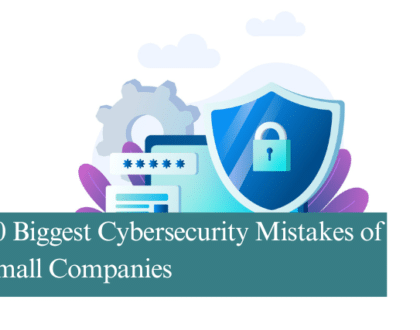
Most businesses use a variety of services for their IT network, which may include domain name and hosting, software licenses, data backup and more. Any service that powers a company’s IT department and online presence will eventually send renewal notice. This holds true for businesses of all sises—from smalls up to multinational corporations.
When you receive a renewal notice, what do you do? The tendency of most people is to file it away or forward it on to the accounting department. Then it becomes someone else’s responsibility. However, if the renewals are taken care of properly, this could cause a major headache for your business.
First Things First: Is the Renewal Notice a Scam?
Scams abound these days and hit businesses from all sides. This could be truer than when it comes to renewal notices. This applies to renewal of services including hosting, domain names, and more. If you’re not aware of it, your domain name, for instance, is public and available to anyone online. Scammers look up domain names and then send fake renewal notices to persons and companies listed as owners.
Scam renewal notices can be delivered via email or as a paper renewal notice through the postal system. These notices look convincing and ask you to pay now to avoid losing your domain name and/or website.
What happens is that scammers try to get their victims to “renew” services directly by clicking a link in an email or directing them to pay through a website. What happens then? It’s possible the payment could just go into a bank account, or the scammer may switch your services to a competitor. Either way, you lose. If you pay directly to their bank account, the payment won’t renew your services. You’ll still have to pay, while the scammer enjoys spending your payment. If you unknowingly switch to a competitor who provides similar services, you may find that the provider’s services are much more expensive.
It’s all very confusing, but there are some signs that the renewal notice may not be legitimate. Before paying a renewal notice, check to see if it’s a scam:
- Is the price higher than what you’ve paid in the past?
- Has the business name changed?
- Is the service provider asking you to pay via check?
- Is the deadline within a few days? (Most service providers generally send out a renewal notice at least one month ahead of the due date).
- Has this company ever contacted you in the past?
If you notice any of these issues, the renewal could be a scam. Avoid clicking any links in email messages and do not call the phone number on a paper renewal notice.
How to Handle a Possible Scam Renewal Notice
The very first thing to do is find your service provider’s website, then find their contact phone number and give them a call. Let them know you’re concerned about a renewal notice you’ve received, explain the situation, and they’ll help you get it sorted out. Your service provider is the best one to help you determine if the notice is legit or not.
Another option is to go directly to your provider’s website and sign into your account. There you will find the correct information about your account, renewals coming up or due, etc. But if you’re worried, do give your service provider a call. You’ll have peace of mind and they’ll be alerted if a new scam’s going around.
To avoid future scams:
- Consider making your domain name registration private. There may be a fee for this, but it will keep you safer from scammers, as they won’t have access to your registration phone number, address, etc.
- If you’re an entrepreneur or a small business owner, avoid putting personal contact information on your website.
Remember not to use links or other contact information provided in a renewal notice that could be a scam. Find your service provider’s contact info yourself. Let them know you may have possibly received a scam renewal notice.
How to Handle a Legitimate Renewal Notice
If you’ve determined the renewal notice is authentic, then you’ll want to deal with it correctly. This means not filing it away directly. In fact, this is a great time to take a look at your services and see if they’re working for your business and your budget.
Before renewing your services, run a quick audit by asking these questions:
1). Is the company still using this service?
2). Is the service really necessary?
3). Does the service meet the company’s current needs?
4). Is it a good idea to downsise or upgrade the service plan?
5). Does the provider offer a plan that would better fit our needs?
6). Is it possible to renegotiate our current plan?
7). Is there another service provider who can better meet our needs and our budget?
Not all service provides will be ready to renegotiate your plan or service terms, but if you don’t try, you could miss out on an opportunity to upgrade or save money on current services. It doesn’t hurt to try.
Renewal Notice Deadlines
You’ve determined the renewal notice is legitimate, now what? If the date is months into the future, the tendency is put file the notice away or pass it on to someone else in the company. Passing it on may be what you’re supposed to do; however, if you’re the one responsible, then put the renewal date as a reminder on your calendar. Have the reminder set to come up a week before the date, then you won’t forget it. You can even set another reminder for the day before or the day of renewal. Decide what works best for you and then do it.
When it comes to renewal notifications for domain names, be aware that ICANN (the Internet Corporation for Assigned Names and Numbers) requires service providers to send renewal reminders about a month or so before your domain expires.
Be sure to take care of your domain name by the renewal date, otherwise you could lose your website. If your domain name expires, you could face some hefty fees for renewing the domain. It’s possible to lose your domain name all together.
In fact, there are unscrupulous people watch for domain expirations and then buy these domains at cheap prices. This even has a name—cybersquatting. If you decide to renew after the expiration, you’ll then have to work with cybersquatter to get your domain back. This may entail paying exorbitant fees to get your website ownership back.
One last bit of advice, if you have trouble tracking renewal notices, then it may be time to consider hiring an MSP (Managed Service Provider) to help monitor your licenses and domain expiration dates. This way, you won’t have to worry about missing an important deadline and losing your website.
Recommended Posts

How to Get the Most Out of Your IT Budget
25th April 2025

10 Biggest Cybersecurity Mistakes of Small Companies
18th April 2025

The Importance of Planning in Business IT Solutions
11th April 2025

